13 Bizarre Facts About Friday the 13th You Never Knew

As sane or rational as we might think that we are, most of us believe—or at least casually observe—a few superstitions. Whether we do so on purpose (methodically not stepping on cracks in the sidewalk) or subconsciously (feeling a sense of foreboding dread as you pass the creaky old house down the street), life can often feel dictated by these illogical inanities. And while superstitions vary from person to person, it is widely believed that Friday the 13th is a cursed, unlucky day. To better prepare yourself for the next one that rolls around, read on for 13 of the most spine-tingling facts about Friday the 13th, the least holy of days.
RELATED: 35 Halloween Facts to Make the Season Even Spookier.
Friday the 13th Trivia You Don’t Want to Miss
1. The day has a dedicated phobia.

If you’re suffering from an intense fear of Friday the 13th, know that you’re not alone. There’s even a name for it: Paraskavedekatriaphobia. The more common triskaidekaphobia refers to the fear of just the number 13, while friggatriskaidekaphobia refers to either a fear of Friday (the Norse goddess Frigg is the etymological origin of Friday) or to a fear of Friday the 13th. According to findings from the Stress Management Center and Phobia Institute in North Carolina, upwards of 21 million people in the US are impacted by the latter. This research suggests it’s actually the most feared day in history.
2. There once was a group that celebrated the day.
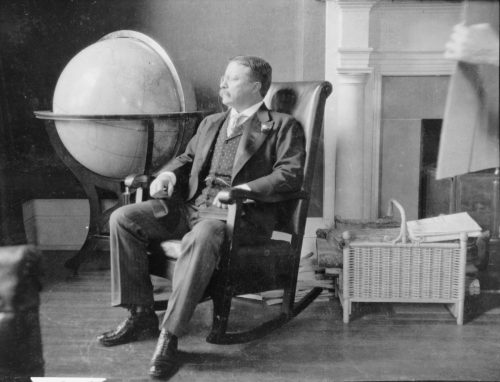
However, an elite group of men in New York City, The Thirteen Club, did the opposite of suffer from this phobia. Rather, the group was founded in 1882 with the intent to repair the number’s reputation by Captain William Fowler, who fought in 13 Civil War battles.
With its membership including other notable figures, like Grover Cleveland, Benjamin Harrison, William McKinley, and Theodore Roosevelt, the club met every 13th of the month, at 13 after the hour, in groups of 13. What’s more, they set out to debunk what they viewed as other irrational fears—like opening an umbrella inside or breaking mirrors—by acting them out at every meeting.
Sadly, the group no longer exists, but there is one familiar face who would likely join if it did. Pop culture icon Taylor Swift has a special affinity for the number 13. She was born on the 13th, she turned 13 on Friday the 13th, her first album went gold in 13 weeks, and her first No. 1 song has a 13-second intro. The singer also claims that every time she’s won an award she has been sitting in either the 13th row, 13th seat, 13th section—or row M—which is the 13th letter of the alphabet.
3. The famous plane crash depicted in Alive happened on Friday the 13th.

Though plenty of other plane crashes have taken place on Friday the 13th—like Flight DC-4 of Pennsylvania-Central Airlines in 1947 (which killed all 50 on board) or, more chillingly, Flight 62 passenger jet of Aeroflot on Oct. 13, 1972, (which killed all 174 on board)—few have been more horrific than the October 1972 crash of Uruguayan Flight 571. (Yes, it happened on the same day as the Flight 62 crash.)
The plane, which was carrying a Uruguayan rugby team and their family members, crashed in a remote part of the Andes Mountains in Chile. With no food or game around and death by starvation imminent, the survivors were forced to eat their (already deceased) fellow travelers. After 72 days, only 16 passengers were rescued. The disaster was dramatized in the 1993 movie, Alive.
RELATED: 39 Facts About Storms That Will Make You Run for Cover.
4. The superstition is partly due to The Last Supper.
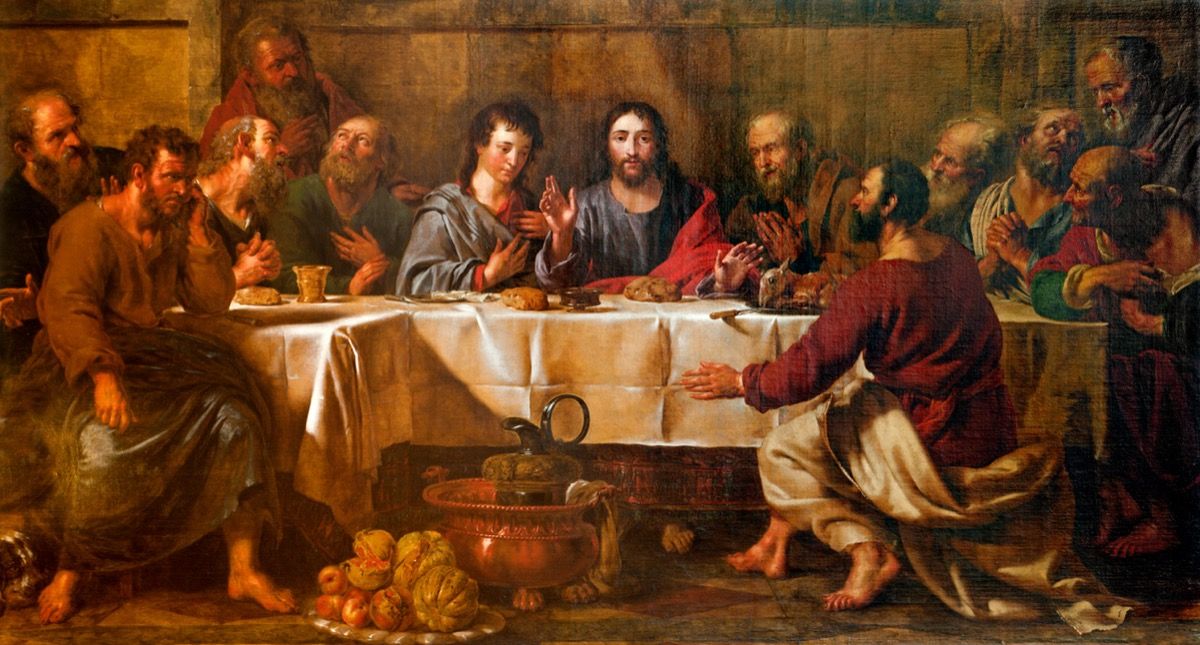
Many claim that this superstition got its start because of the Last Supper—an event in which there were 13 guests seated around the dinner table. According to the Christian tradition, one of those guests happened to be Judas, who ultimately betrayed Jesus, thus fueling the superstition that a dinner party with 13 guests is incredibly unlucky.
5. The first popular reference to Friday the 13th was in a novel by Thomas Lawson.

As it turns out, stockbrokers have a very real fear of the holiday as well, citing a certain book, Friday, the Thirteenth by Thomas Lawson, for encouraging wariness about the stock market on that particular day. In the novel, Friday the 13th is the day that Wall Street collapses and plunges the world into chaos. Creatives have continued to lean on the day for inspiration, as exemplified by Jason Voorhees and the Friday the 13th horror film franchise.
6. It’s also the day that heavy metal was born.

On Friday, Feb. 13, 1970, the heavy metal genre was born with the release of Black Sabbath’s self-titled debut album. Songs including “The Wizard” and “Wicked World” delved into the supernatural, scored by fierce guitar riffs and heavy drumming patterns.
7. One Indiana town took the lore of this day a step further.

In the 1930s and ’40s, the small town of French Lick, Indiana, required all black cats to wear bells around their necks every Friday the 13th so that townspeople could avoid them and the additional bad luck they would supposedly bring. According to the town’s decree, “The practice was introduced on Friday, Oct. 13, 1939, and enforced on all fateful Fridays since, except last year, when a number of minor mishaps occurred.”
RELATED: 30 Scary Ocean Facts More Terrifying Than Anything in Outer Space.
8. It does no good to avoid the day.
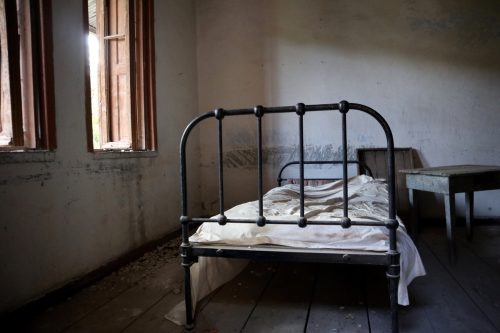
For Daz Baxter, the holiday was incredibly stressful—too many ladders to walk underneath and black cats to cross in front of your path—and it was better to just stay home in bed. Or not, as it turned out for Baxter, who was so terrified of the holiday that he shut himself in his apartment in 1976, only to have his bed plummet six stories, where he eventually died. Yikes!
9. Only three Fridays per calendar year can fall on the 13th.

Good news: you only face the bad luck of Friday the 13th three days out of the year, max. In fact, until 2026, we’ll only have to worry about two days out of each year. For quick planning, know that if the month kicks off on a Sunday, you can plan on the 13th falling on a Friday.
Although, that doesn’t mean everyone can escape the supposed bad luck brought on by the 13th. In some Spanish-speaking countries, the day to fear falls on a Tuesday. The movie Friday the 13th was even translated into Martes Tres (Tuesday the 13th) for its global release.
10. Alfred Hitchcock had a close relationship with the day.

The master of all murder, mayhem, and superstition, director and filmmaker Alfred Hitchcock was aptly born on Friday, Aug. 13, 1899. His most famous association with the number, though, had to do with his directorial debut film, Number 13, which lost its funding and never made it past the beginning scenes.
RELATED: 37 Weird Facts About the Human Body That Will Blow Your Mind.
11. Luck goes both ways on Friday the 13th.
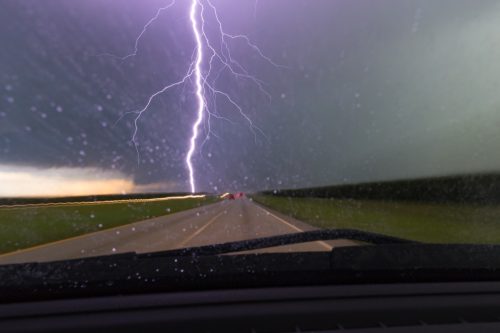
On Friday, Aug. 13, 2010, at 13:13 military time, a 13-year-old boy was struck by lightning in Suffolk, England. Talk about bad luck… But in a turn of good luck, the child only received minor burns. This aligns with another belief: Some pagans actually find 13 to be a lucky number since it parallels the number of full moons in a year.
12. Friday the 13th marked the fall of the Knights Templar.
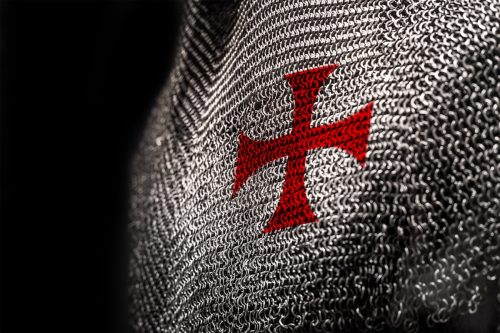
While we’re still waiting on research to confirm the claim, many believe that it was on Friday, Oct. 13, 1307 that King Philip IV of France instructed his officers to raid the homes of the Knights Templar. More than 600 knights were arrested on charges of illegal activities and brutally tortured. Two years later, the order was officially dissolved.
13. In Finland, Friday the 13th is “National Accident Day.”

In an unusual attempt to relieve the anxiety felt by more superstitious people, Finish officials declared Friday the 13th “National Accident Day.” The idea was to raise awareness about safety at home, in public, and on the road. Rather than look at accidents as unavoidable outcomes of fate or bad luck, citizens are encouraged to think about how they can prevent these tragedies from happening in the first place, whether that’s from looking both ways before crossing the street, keeping their eyes on the road while driving, or taking other precautions.
Wrapping Up
That’s it for our collection of facts about Friday the 13th, but be sure to check back with us soon for even more trivia! You can also sign up for our newsletter so you don’t miss out on what’s next!